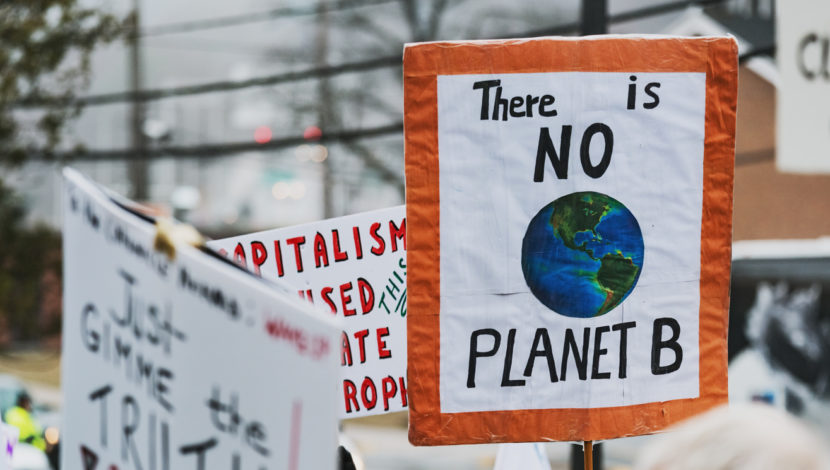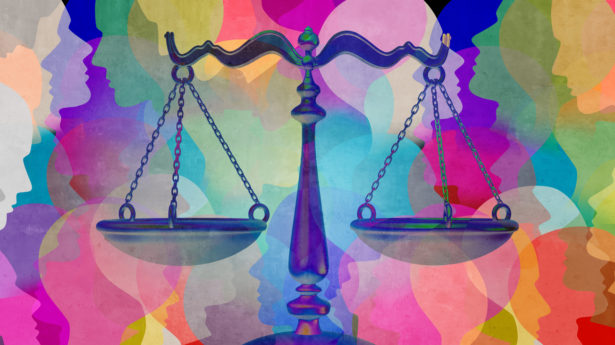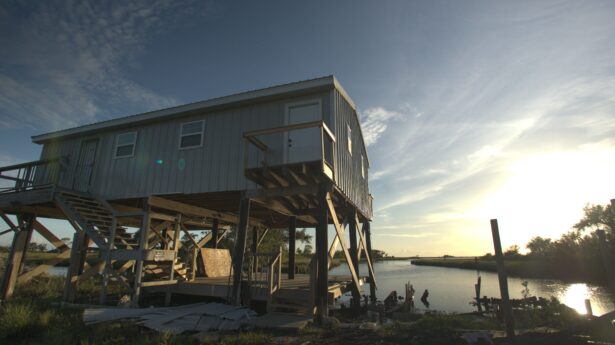The Unitarian Universalist Service Committee advances human rights through grassroots collaborations.
Climate Week 2021: The U.S. Government Must Heed the Demands of Climate-Affected Communities

By on April 23, 2021
On April 22, the Biden administration convened a two-day meeting with officials and heads of state from 40 countries around the world to address the global threat of climate change. The summit was timed to coincide with Earth Day—an annual touchstone for the U.S. environmental movement—and symbolizes the president’s desire to improve on the legacy of his predecessors and increase U.S. ambition to address the climate crisis. To inaugurate this era, the White House issued a new pledge (known as a “nationally-determined contribution,” or NDC, under the terms of the Paris Agreement) to reduce U.S. carbon emissions by 50 percent or more by 2030 from its 2005 levels.
Will This Pledge Be Enough?
This non-binding commitment is significantly more ambitious than the previous U.S. NDC; however, it still falls dramatically short of the need. Not only would these cuts be insufficient to keep global warming below the 1.5-degree Celsius threshold set by international scientists; the NDC is also considerably less than the United States’ fair share of global climate costs, as assessed by grassroots advocates. In light of the outsized role the U.S. has played in creating and exacerbating the climate crisis, advocates are calling on U.S. authorities to pony up resources equivalent to a 195 percent emissions reductions by 2030, both through direct cuts and international climate finance.
Specifically, an NDC that pays the United States’ “fair share” would slash the U.S.’s own emissions by at least 70 percent, while contributing at least $800 billion to countries in the Global South to help cover the costs of climate destruction. These costs come in at least three recognized forms: 1.) mitigation—i.e., the need to cut further greenhouse gas emissions through a just transition to renewable energy sources; 2.) adaptation—i.e., the ability of societies to safely adapt their lifeways in response to climate change; and 3) loss and damage—that is, resources that are irretrievably lost as a result of climate change and cannot be saved through adaptation. A U.S. “fair share” must evenly address all three.
The Biden team’s efforts to increase U.S. climate ambition and convene world leaders to address it are certainly welcome. But their actions will still fail to keep pace with the scale and urgency of the problem if they do not listen to the communities it most directly affects. The April 22-23 summit gives a platform to authoritarian heads of state and the leaders of industrialized nations in the Global North—that is, people who have contributed the most to climate change while facing the fewest direct consequences of it. It is certainly important for these leaders to gather and coordinate action; however, the conversation must begin and end with communities on the front lines of the crisis.
Listening to Voices on the Frontlines
In order to center these voices and experiences in the larger climate conversation, the Legal Justice Coalition—facilitated by UUSC and the Lowlander Center—and the Rising Voices Community Relocation & Site Expansion Working Group convened a panel discussion on April 20, 2021. It was made up not of high-ranking government officials, but of community leaders, scholars, and activists from places around the globe that are most affected by climate change—including Central America, the Pacific, Alaska, and Louisiana. In this way, it provided a much-needed alternative perspective to the summit convened by Washington.
Amidst the vast diversity of experiences that were shared on the panel, some common themes emerged. First, the climate crisis is not a future eventuality; it is already upon us. Forced migration caused by this crisis is happening here and now, with people already being thrust from their homes both within and between national boundaries by increasingly intense storms and slow-onset effects of climate change, such as erosion and permafrost melt. Second, the costs of this crisis are inequitably distributed—falling hardest on the people who have done the least to cause climate destruction in the first place.
“When it comes to equity and people being displaced, we need help now; not someday: now,” said Hilton Kelley, noted environmental activist from Port Arthur, Texas and 2011 recipient of the Goldman Prize, who has long been a recognized leader in confronting pollution and environmental injustice in the United States. “We contributed almost nothing to the impacts of climate change,” said Richard Gorkrun of the Pacific island nation of Tuvalu, “we are innocent”; yet in spite of this, his country, he pointed out, is already experiencing massive effects from the climate crisis, including more severe cyclones, droughts, flooding, and potential sea level rise.
Robin Bronen of the Alaska Institute for Justice (AIJ) pointed out that, while the Biden administration has begun to acknowledge the reality of international migration linked to climate change, they have so far done little or nothing to recognize and support Indigenous communities inside the United States who are already experiencing climate displacement. This comes in spite of the fact that UUSC’s partners, including AIJ, submitted a formal complaint to the United Nations charging that the U.S. government has failed to uphold its obligations to Indigenous communities affected by climate change.
Climate displacement is only going to happen on a larger scale and with even less regard for human rights in the years ahead, unless the U.S. government and other world leaders dramatically shift course. This Earth Day is an opportunity to do just that. We must recenter the conversation on the perspectives, experiences, and demands of the people who have been forced to bear the costs of our government’s contribution to the global climate catastrophe. Instead of hearing only from people who have inflicted this human rights violation on the world, we must respect the voices and insights of those who are living with its consequences already—and who are showing us the way out.
***
About UUSC: Guided by the belief that all people have inherent worth and dignity, UUSC advances human rights globally by partnering with affected communities who are confronting injustice, mobilizing to challenge oppressive systems, and inspiring and sustaining spiritually grounded activism for justice. We invite you to join us in this journey toward realizing a better future!
Photo Credit: iStock – shaunl

